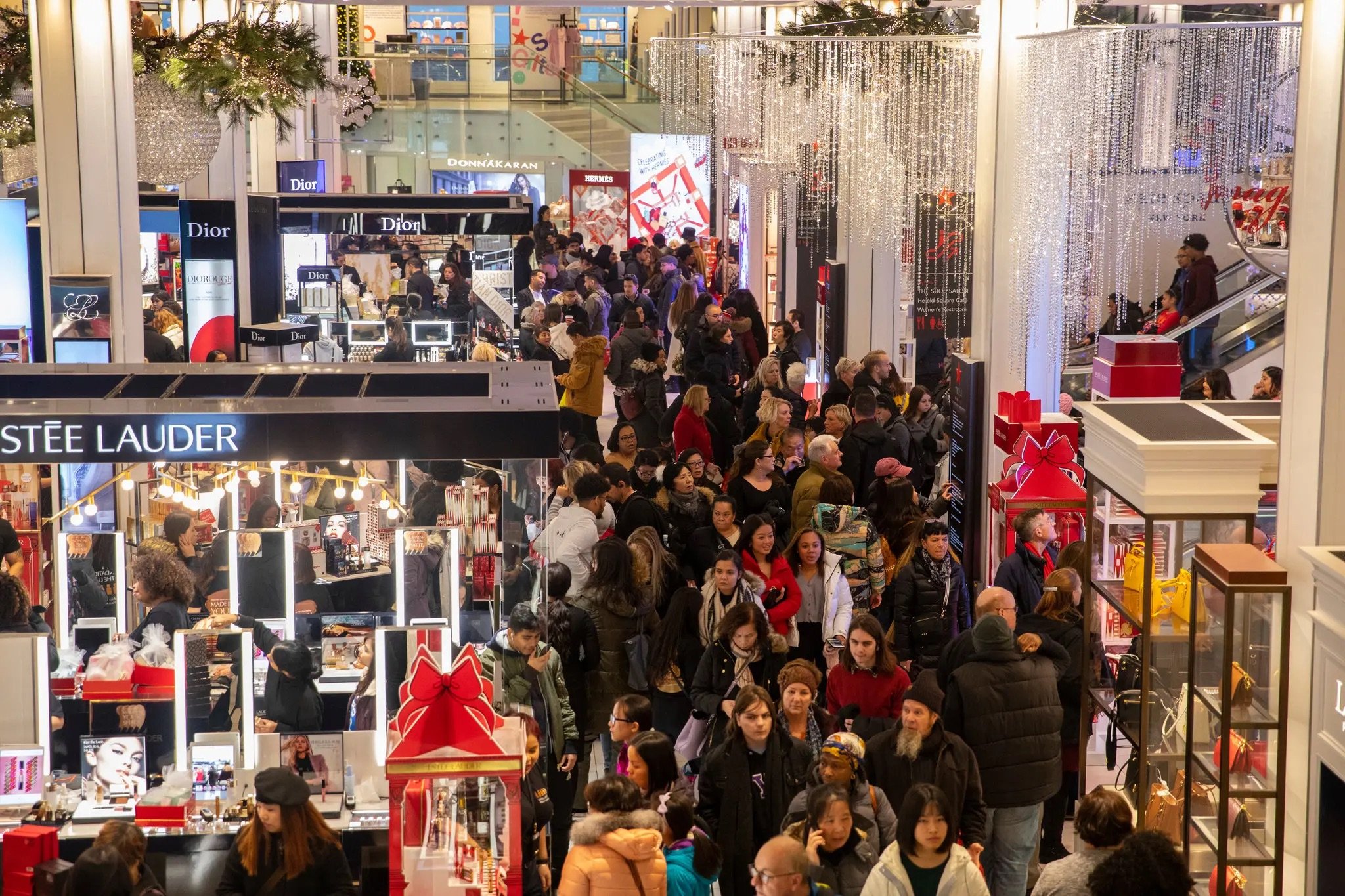by Eden Barletta
It’s that time of year again: when people line up at stores to get the best deals on everything imaginable, and retailers pull out all the stops to get us to buy more and more. Often, this shopping is well-intentioned: gifts for loved ones, festive decorations, and discounted essentials. Yet, this continuous urge to shop during the holiday season is costing us more than just our money.
An American mall is over-run with holiday shoppers. Photo credit: Calla Kessler/New York Times
Overconsumption refers to excessively purchasing and using goods or resources beyond what is necessary to live comfortably. It’s a problem common to developed nations, with the US being one of the leading countries in worldwide consumption rates. Between Thanksgiving and New Year’s Day, Americans produce 25% more waste than usual, sending an additional one million tons per week to landfills.
If everyone were to consume as much as Americans do, we would need the resources from over 5 Earths to sustain that rate of consumption. Overconsumption in the world’s richest countries, like the US, is destroying the global environment and disproportionately impacting those who are not partaking in this high level of consumption. The richest one percent of the world’s population emits more than twice the amount of greenhouse gases than the poorest 50%.
The above graph displays how the poorest 50% of the global population is responsible for only 8% of emissions, whereas the richest 10% is responsible for 50% of global emissions. Graph: Climate Equality: A planet for the 99%, pg. 11 of Executive Summary, Oxfam
It takes a lot of resources and money to keep up with the global rate of consumption. Nearly half—42%—of all US greenhouse gas emissions are associated with the energy used to produce, process, transport, and dispose of our goods and food. On a global scale, we are consuming the planet’s resources 1.7 times faster than it can regenerate. If everyone began emitting as much carbon dioxide as the world’s wealthiest 1%, the remaining carbon budget would be gone in fewer than five months. These numbers show the strain that consumption rates are putting on our planet.
So, what are the hidden costs of overconsumption? Pollution, resource depletion, greenhouse gas emissions, rising prices, and so much more. Now, with all this being said, no one expects everyone to just stop shopping entirely during the holiday season. My ask is that you think about your individual impact before you shop, now more than ever. By making adjustments to our individual shopping behavior, we can collectively reduce our environmental impact.
Here are some tips to reduce your consumption and carbon footprint this holiday season:
Set a budget and a shopping list, and stick to it as best you can to help hold yourself accountable for not overbuying on unnecessary items
Make your own decorations! Turn it into a fun event with family and friends
Use reusable bags for presents or recyclable wrapping paper
Donate to your favorite organizations. Make it a gift, donate in honor of a loved one to a cause they support. Consider starting with Climable, we are accepting donations now!
Shop in person if you can, to reduce shipping emissions/costs and packaging waste
Consider experiences over tangible items
Thrift your presents
Shop local!
Locally owned shops tend to have lower carbon footprints than larger corporations. They also allow you to support the local economy while strengthening community resilience. If you have the ability to, make a meaningful impact this holiday season by choosing to shop small and support local organizations. Happy Holidays!




